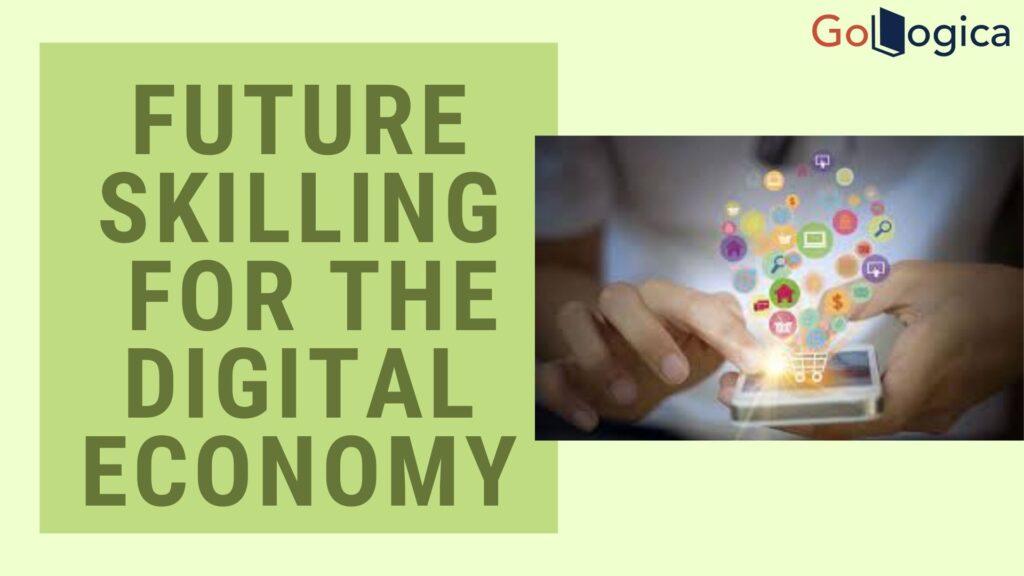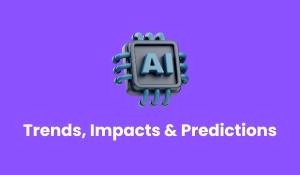
Do you have what it takes to work in the digital economy? With technology becoming more and more ubiquitous in our lives, employers are looking for skilled employees in digital literacy. This blog post will explore what skills are needed to thrive in the digital economy and provide a role-based approach to learning these skills. Let’s get started!
As technology advances and becomes more deeply integrated into society, it impacts business competition and economic productivity. The internet has radically redefined the modern global economy. The internet accounts for around 5% of GDP in Europe alone and represents roughly 7.5 million jobs. The growth in online trading has been matched by growth in online assets held by households, with a quadrupling of European households who were active savers using digital finance services between 2001 and 2010.
The digital economy, however, is not without its challenges. Although OECD countries have benefited from productivity and consumer surplus increases, the Internet has also exacerbated income disparities between developed and developing economies. Furthermore, there are significant concerns regarding whether or not technology is displacing labor faster than it is, creating new employment opportunities.
The digital economy has grown dramatically in recent years. However, it has not been without its issues. The digital economy also affects income disparities between developed and developing countries. In addition, there are concerns about whether it displaces labor faster than creating new employment opportunities.

Role of Digital Economy in Developed Countries
The digital economy represents more than just a shift of consumer spending towards online services; the internet has transformed how governments interact with their citizens, how companies operate their businesses, and how consumers purchase goods. Furthermore, it has significantly affected economic productivity across many sectors, including manufacturing and public administration. Digitally integrated business models have allowed firms to be more flexible concerning location decisions, capital investment, product design, and quality control. As a result, highly digitized industries such as the automotive sector have become more geographically dispersed.
OECD (Organisation for Economic Co-operation and Development) countries rely on advanced infrastructure to support the digital economy, often provided through public-private partnerships. These networks require a significant initial investment to be effective; however, the positive effects of internet connectivity and e-commerce on productivity and consumer surplus can potentially offset these costs over time. The benefit of connectivity is particularly pronounced in business-to-business relationships across international borders. For example, Nielsen reports that 50% of small businesses use an online marketplace to sell products or services.
Role of Digital Economy Developing Countries
Developing countries have also greatly benefitted from the growth of the digital economy. Digital finance services have seen significant uptake among lower-income consumers worldwide, particularly in China, Mexico, and Pakistan. The expansion of mobile broadband networks has made it possible for people living in remote areas to access online education or improve their employment options through virtual work. In India, for example, there are nearly 1 million women employed as online workers who generate up to ten times more income than they would otherwise earn without internet connectivity. Many developing countries have adapted existing technologies to create new business tools powered by mobile technology. For instance, M-Pesa is a popular platform that allows African consumers to transfer money via text message.
Role of Digital Economy in the Workforce
New technologies are creating opportunities for developing economies, but they are also displacing roles in developed countries. Advances in machine learning have allowed firms to automate specific tasks that humans previously performed. In addition, reducing the cost of search and information gathering has altered traditional consumer behavior patterns. A study by Carl Benedikt Frey and Michael Osborne at Oxford University found that 47% of jobs in the United States are under threat from automation, which will have significant implications for labor markets worldwide. Furthermore, this phenomenon is being felt beyond routine tasks, with professions such as accounting or legal work being redundant through technological advances.
Despite the immediate job losses that can be expected, new roles are also being created due to technological disruption. For example, digital platforms such as Etsy and Kickstarter have provided an opportunity for creatives to sell their work online. As well as generating revenue, these services allow people to maintain control over their creative output. A recent report by Accenture highlights that business-to-business opportunities across international borders facilitated by the internet will continue to grow exponentially in coming years, therefore creating further demand for digitally skilled workers.
What are the Benefits of the Digital Economy?
The digital revolution and interconnectedness the planet has seen over the last few decades is nothing short of phenomenal. The evolution from analog to digital technology has created a global marketplace for goods, services, and ideas.
This innovation has produced numerous benefits that extend beyond technological breakthroughs and economic expansion, including education, health care, democratic reform, deforestation avoidance, and biodiversity conservation, to name only a few.
One area that seems most dramatically affected by digitalization is the economy itself. A 2015 report issued by Thomson Reuters stated that “the pace of change in the global economy has never been as fast as it is today, largely due to accelerating digitization.”
The World Economic Forum’s 2016 report on the future of financial infrastructure stated that “a revolution is underway driven by a convergence of technologies across the entire financial services landscape” and that this evolution will be an accelerator for growth. Of all sectors, banking appears to have been affected most by digitalization with the launch of e-commerce platforms such as Apple Pay and Google Wallet and activities such as crowdfunding.

Conclusion:
There is no one-size-fits-all answer to what skill sets will be in demand in the digital economy. However, by taking a role-based approach to understanding future skill needs, we can develop an idea of which areas of expertise will be most sought after. With this information, individuals and businesses can begin to plan and invest in training and development programs to help them stay ahead of the curve as technology evolves. So, what do you think are the essential skills for employees operating in the digital economy? Let us know in the comments below!
Related Courses:
| Course Name | Enroll Now |
|---|---|
| Digital Marketing Certification Program | Enroll Now |
| Mastering SEO Training | Enroll Now |
| Social Media Marketing Training | Enroll Now |
| Advanced Pay-Per-Click (PPC) Online Training | Enroll Now |
| Web Analytics Training | Enroll Now |
Author Bio:
Anji Velagana loves pursuing excellence through writing. He currently writes for Gologica.com, a global leader in providing the best online training to individuals who wish to take training on different abilities. He has experience of 5 years in the field of content writing. Contact him via LinkedIn.











